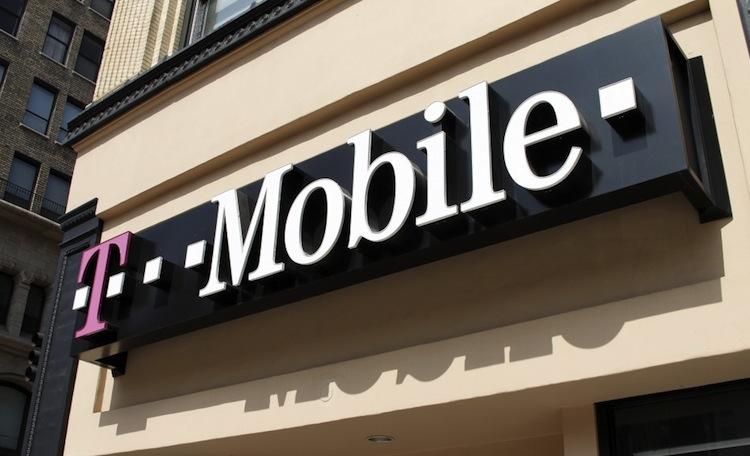
T-Mobile fans and users have been waiting with bated breath for over nine months to see exactly how this proposed AT&T merger would pan out. Although the deal never seemed as if it would go through without a hitch – like deep divestitures and many other sacrifices on AT&T's part that would barely keep the merger alive – there was always a small chance that it would get approved.
Then what?
AT&T, in their countless approaches and different angles on how buying T-Mobile would be for the betterment of the entire mobile industry as a whole, wanted us to believe that the deal would increase jobs, spur competition and keep prices down. But it would also mean that there would only be one major GSM carrier in the States. And while it could create "tens of thousands of jobs" out of thin air, it would also leave a lot of existing T-Mobile employees without them.
Today, however, AT&T announced that they have dropped plans to acquire T-Mobile. What may have happened if they were ever actually allowed to follow through with the buyout is unclear – we may never know. But now that it's not going to happen (at least for now), we're all left wondering what will happen to T-Mobile in the months ahead.
After the news broke of AT&T backing out of the proposed deal, my Twitter feeds (from my several accounts) were filled with commentary on the issue. Some, albeit few, were upset the merger didn't go through, others – mainly T-Mobile users and enthusiasts – were rejoicing that their beloved Magenta will remain untainted for the foreseeable future. And the rest took a more cynical (yet entirely plausible) view: "R.I.P. T-Mobile."
But what will happen to T-Mobile? They're still far behind the rest of the major US providers in terms of subscribers, and although their earnings reports are showing growth throughout 2011, numbers are still down from the previous year. To make things slightly worse, the parent company, Deutsche Telekom, made it very clear they no longer want to invest in the wireless market stateside.
T-Mobile obviously does not want to stand alone; otherwise, they wouldn't have been so eager for the merger to go through. This can only mean one thing: now that AT&T is out of the picture, talk with other companies about acquisitions will start to take place. First up to show interest in sharing spectrum with T-Mobile was Dish Network. I have a feeling this will be the first of many.
It isn't clear what a merger between two radically different companies like Dish and T-Mobile USA would lead to, but rest assured, T-Mobile and those of the like suffering from the "spectrum crunch" will consider pairing up. Roger Cheng of CNN even suggested that AT&T and Dish may decide to partner. Cheng also mentioned Clearwire who is still looking to sell its spectrum off. There are a lot of unlikely buyers floating around and partnerships to be made. Seeing as a lot of them are not in direct competition with one another and would not lead to a monopoly (or duopoly), an acquisition between them would be far more likely to get approved.
Unlike AT&T who claims their backing down from the bid will only harm their customers (in the form of higher prices), I wouldn't expect to see a lot of changes on T-Mobile's part immediately, though. Things will continue as they were. However, there are some things that T-Mobile desperately needs to focus on.
Since AT&T agreed to a breakup fee, T-Mobile has $4 billion – $3 billion in cash and another paid in spectrum – coming their way from Ol' Blue, along with a 3G roaming deal. In other words, they have some extra cash flow now, and they need to spend it wisely. Plans, pricing and smartphone lineups are already set for T-Mo. Where they need to focus serious attention now is in expanding their network and providing a more seamless experience for customers.
Update: David from TmoNews corrected me on the above statement. T-Mobile USA is not the recipient of the $3 billion cash and $1 billion in spectrum; that goes to Deutsche Telekom.
Possibly the most important thing on T-Mobile's agenda needs to be finding a way to offer the iPhone. Currently, they're the only major provider in the United States who doesn't offer Apple's ever-popular handset, which puts them at a major disadvantage. We know T-Mobile wants to offer the iPhone, and many speculated that the reason the never got dibs on the 4S was due to the pending merger. Now that it's out of the way, they need to broker a deal with Apple and stock some shiny iPhones on their shelves.
I'm thrilled the AT&T-Mobile merger didn't pass. Wireless customers in the US need more than one GSM option, among many other reasons. But I would not be upset to see T-Mobile merge with someone like Dish or to seem them use that money to buy some (and I emphasis that because $3 billion isn't going to buy a whole lot) spectrum from Clearwire. They need to stick a For Sale sign in their front yard and see who bites. Partnering with a company whose pockets run deep and won't interfere too much with the way things are run wouldn't be a bad idea.
So tell me, readers. Were you happy to learn AT&T is pulling out of their bid for T-Mobile? What do you think will happen to Magenta now? Will companies (such as Dish Network) come along and place bids of their own? Or will T-Mobile USA try to stand on its own two feet and tackle larger providers by itself?
Image via IBTimes